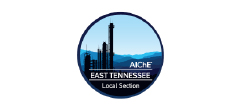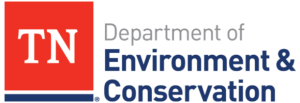TRACK 1 – Technology & Design for the Circular Economy
Click on seminar title below to read the abstract
Moderator:
Greg Wellman, Technology Manager for Decarbonization, Eastman Chemical Company
Armstrong International:
Circular Thermal Methodology as the Optimum Way to Decarbonization
Peter DeWitt, Director of Circular Thermal Businses Unit
Rockwell Automation:
Examples and best practices to begin your decarbonization efforts
Robert Swim, Chemical Industry Manager, North America
Siemens Digital Industries:
Simulation as a key lever to decarbonization
Eryn Devola, Head of Sustainability
Honeywell:
Navigating the decarbonization journey: Honeywell’s dual role and strategies
Deanna Haines, Dr. Director, Innovation Leader – Sustainability
MarqMetrix, part of Thermo Fisher Scientific
Real world examples highlighting the use of Raman spectroscopy in decarbonization projects
John Richmond, Sr. Sales Manager
Moderator:
Georgia Niccum, Group Leader, Asset Integrity, Eastman Chemical Company
Discussion with four seasoned industry pioneers on best practices, industry trends and what to expect in the coming years ahead. Georgia will weave together a conversation with panelists based on abstract topics submitted by them listed below:
Asset Integrity Programs Implications
Dave Long, Director of Asset Advisory, Worley Consulting
Best Practices for Plant Buildings: Protecting your People and Critical Equipment
Thomas Mander, Principal Engineer & Manager, BakerRisk
Mechanical Integrity: Optimizing Life Cycle Cost of Ownership
Steve Burkle, Senior Reliability Engineer, Tormond / Hargrove
Changing the Fluid Dynamics to Reduce Fouling
Martin Gough, Founder & Managing Director, CalGavin
Nina Zerman, Senior Manager, Dürr Systems, Inc.
Sustainability is becoming increasingly critical; businesses must adopt practices that support a circular economy and reduce environmental impact. Service organizations can play a vital role in promotingsus tainability throughout the product lifecycle.
Circular economy is a system that aims to minimize waste and maximize the use of resources by keeping assets in use for as long as possible. The combination of sustainability and circular economy together produces a restorative, regenerative system that aims to keep products, components, and materials at their highest value and lowest utility usage. Dürr offers pollution control systems that meet or exceed environmental companies yet comply with sustainable policies and extended product life cycle.
Additionally, Dürr’s service organization can help businesses adopt sustainable practices by providing services that support the circular economy. These services include repair, refurbishment, re-manufacturing, and recycling. By extending the life of products, service organizations can help reduce waste and promote sustainability.
What attendees will learn
- Learn about technical methods to stay in environmental compliance
- How to implement sustainability and energy reduction to their APC systems
- How to extend the life of their APC
Warren Bowman, District Sales Manager & Courtney Tripp, Sr. Manager of Sustainability and Strategy, Grundfos
Our focus is providing Intelligent, sustainable solutions that improve the efficiency and reliability of your operations. Working with leading corporations, Grundfos’ goal is to help every industry reduce wasted energy, carbon, and water during production of the world’s needed products. As the first water solutions company with approved net zero and near-term targets through the Science Based Targets Initiative (SBTi), Grundfos is focused on helping manufacturers to reduce their scope 1 and 2 emissions through the hidden potential in their pump rooms and on-site utilities. Helping engineers and industry to build a more efficient and sustainable production process is our commitment through advanced motor and drive technologies, sizing tools, and energy audits.
- An Overview of the Science Based Targets initiative and scope 1, 2 and 3 emissions.
- Insights into how Grundfos can help attendees and their companies meet these targets.
- Get introduced to Grundfos’ (Free) Energy Optimization programs to determine energy usage, costs, and carbon impact of dated pumping equipment, potential energy saving options with ROI, cost savings, and carbon usage reduction.
What attendees will learn:
- Learn about intelligent dosing pumps and systems, as well as e-motor pumps built with integral PLC/ VFD controls designed to reduce product waste, water and power usage.
- Hear about case studies where these technologies are being applied successfully.
Dan Purkat, Worldwide Industrial Product Manager, Graco, Inc.
Today’s chemical formulations are constantly striving to be environmentally friendly. Now, “being green” can be achieved at the plant level. Operations managers are under constant pressure to meet deadlines while continuing to find ways to lower overall production costs. These issues can be overcome by using improved pump technologies while significantly lowering energy and maintenance costs. Using electronically controlled diaphragm pumps for specific raw material transfer, process transfer, and filling applications provide unique opportunities for improvement. Understanding how your local Utility Company can assist with the initial purchase combined with reduced daily energy consumption is critical to lowering costs. By employing specific pumping technologies in key applications, KWh consumption can be reduced by factor of 5x or more. An understanding of these technologies allows for continued process improvements while lowering total overall operating costs.
What attendees will learn:
- How new pumping technologies are being utilized to achieve sustainability goals
- Comparative analysis of new technology vs. existing
- How these new technologies operate
- How local utilities can assist in defraying installation costs and utilizing incentives
Jason Cumberland, Regional Sales Manager, Hach
Organic contamination is a key water quality parameter that is measured in most industrial environments and in many different applications. The speed, accuracy, and range of organics analysis has increased in recent years, and the reliability of online organics analyzers has improved. This improvement in functionality and confidence in continuous organics analyzers has seen an increase in demand from industries to monitor organics to minimize product loss, protect steam cycle equipment, and mitigate environmental compliance risks. This presentation will review the range of organics analysis methods for water and wastewater with an emphasis on the methods for Total Organic Carbon (TOC) that have been adapted to online organics analysis. Typical installation locations and applications will also be presented.
What attendees will learn:
Overview of organics analysis techniques for water and wastewater (BOD, COD, TOC, UVAS). Modern improvements in the reliability of continuous Total Organic Carbon (TOC) analyzers. Overview of common TOC monitoring locations for industries.
Ed Quach, Global Project Line Director, Mixing Technologies, Chemineer
Discussion Outline:
Mixing Overview
- Mixing Definition
- Agitator components
- Designing an Agitator
Energy Efficiencies – Capital Efficiencies
- Optimization and selection of impeller
- Optimization to reduce HP consumption
Asset Reliability
- Agitator mechanical design
- Agitator process design
The people of NOV
Talent and workforce development
What attendees will learn
Attendees will here some basic background of agitation/mixing equipment followed by some discussion on how the equipment can be designed to improve the efficiency without sacrificing performance. Attendees will also learn design aspects that can be implemented to improve the reliability of the equipment and performance.
Zach Korkowski, Senior Manager, Projects and Client Development, Index AR Solution
Large companies deploying Index eBooks and mobile applications have achieved improved safety, quality, schedule, productivity, training, and talent pipelines. This presentation will discuss the Index process to develop its eBooks and mobile applications as well as provide a hands-on experience to participants.
What attendees will learn:
- The business case for Index – benefits and investment
- How Index scopes and estimates a fixed price projects
- How Index manages the project: In person kickoffs and deliveries, On-site Media and content gathering,
- Weekly progress reviews and monthly program reviews
- A unique approach to Index development: Collaborate with client to optimize critical processes
- Create multi-modal content to support all learning styles, Build and deploy eBooks and mobile applications
- Hands on experience of Index eBooks and Mobile Applications
Paul Hulme, Business Development Manager, & Brian Anderson, Business Development, John Crane
Discover the synergy between filtration systems, CFD simulations and the evolving landscape of the new energy market. Join your colleagues for this John Crane webinar and discover how advanced technologies intersect with the new energy market. In conjunction with eChem Expo 2024, this webinar will offer the best pathways toward sustainable operations while maintaining top-tier performance standards. Throughout this session, opportunities will include:
Featured technologies:
• CFD (Computation Fluid Dynamics)
• Filtration systems
• Polymer filtration
What attendees will learn:
- Interacting with product managers and industry professionals well-versed in the integration of mechanical seal reliability, filtration systems and Computation Fluid Dynamics (CFD) in the context of the new energy landscape.
- Understanding the pivotal role of reliable products and services in optimizing refinery and plant reliability within the dynamic framework of the new energy market. Gain insights and have your technical questions addressed by experts.
- Connecting with a vibrant technical community to share experiences and gain insights on how organizations align with the latest environmental standards, ensuring safety and effectively controlling operations in the new energy market.
- Discovering the significance of optimizing filtration systems tailored for specific processes, often overlooked for maximum efficiency within the new energy market.
- Learning about the advantages of employing CFD simulation techniques specifically tailored for polymer filtration systems to enhance operational efficiency and validate proof of concept simulations for diverse scenarios.
- Exploring key points in leveraging CFD to predict liquid/gas behavior, augmenting process performance and showcasing simulation-based proof to concept for various scenarios within the context of the evolving new energy market.
Barney Graham, Global Business Development Manager – Asset Management – Process Improvement, John Crane
Maintaining an optimal balance of inventory is crucial for enhancing overall financial performance. Holding too little, too much, or the wrong inventory can have a significant impact, leading to:
- Increased downtime due to the unavailability of critical spares, resulting in a drop in revenue.
- High costs associated with holding unnecessary parts.
Furthermore, neglecting proper care of spare parts can result in:
- Potential safety incidents and environmental releases due to installing parts in poor condition.
- Increased downtime.
- Wasted expenditure.
The root causes often stem from:
- Poor control and governance of key data.
- Inadequate processes or practices.
- Both of these causes can contribute to safety or environmental incidents, reduced revenue, increased costs, and potentially a combination of these issues.
Targeted inventory optimization aligned with corporate goals can yield financial benefits several times the project cost by:
- Preventing safety or environmental incidents.
- Reducing downtime and increasing revenue.
- Cutting unnecessary costs.
- Eliminating waste.
- Generating cash through the sale or scrapping of unnecessary spare parts.
This presentation aims to introduce you to the strategies for achieving these benefits.
What attendees will learn:
- Preventing safety or environmental incidents.
- Reducing downtime and increasing revenue.
- Cutting unnecessary costs.
- Eliminating waste.
- Generating cash through the sale or scrapping of unnecessary spare parts.
- This presentation aims to introduce you to the strategies for achieving these benefits.



